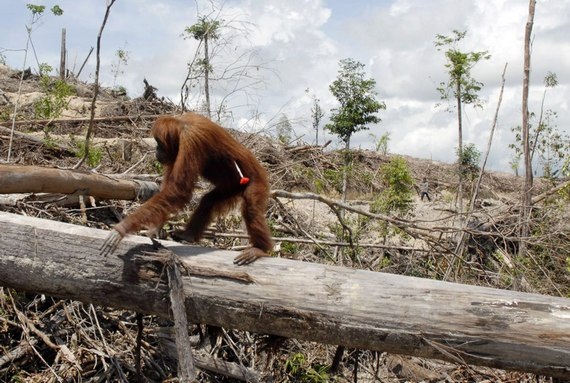The End of the Greatest Show on Earth: What it means in terms of performing animals
It's been several months since Feld Entertainment announced the end of the Greatest Show on Earth. This understandably is a momentous occasion, with one side grieving for the death of a 146 year tradition and the other side cheering for the animals that will no longer be shuttled from city to city to perform. But what does this mean in terms of the performing animals? We're going to dive in to what impacts the performing animals that have entertained people for centuries and how it has drastically changed.
Circus elephants are always the headliners of the circus, but with the controversy circling the performing pachyderms, Ringling decided to pull out the iconic jumbos from their traveling acts, with the last circus elephant performances ending in May 2016. To Feld Entertainment's astonishment, the people that had propped up the circus' attendance like a crutch had WANTED to see the elephants. Without the charismatic animals, circus attendance plummeted and Feld made the decision to close the 146 year tradition for good. For years, the circus represented human innovation and the passion they had for their art. Not many can dedicate their lives to performing acrobatic stunts or performing with lions every day. A single mistake could cost them their ability to walk or even their lives. The circus was a big deal when it began with the merger of Ringling Bros. and Barnum & Bailey's circus aiming to create "The Greatest Show on Earth". They succeeded, but all things must come to an end, even the circus.

What does this mean in the short term? For Feld Entertainment, the company that runs Disney: Live on Ice and Monster Trucks, the circus was more of a symbol of their dedication to live entertainment. Feld still is invested in the circus business, albeit with their elephant breeding center, so don't expect them to be out of the spotlight yet. In terms of the performing animals, most of the animals will be retired with their trainers. This includes a staggering menagerie of lions, tigers, kangaroos, horses, camels, dogs, and other animals. Reports have circulated the Internet about Feld Entertainment being unable to place some of their animals which may or may not be true. Animal sanctuaries tend to be full to the brim with unwanted exotic animals, but Feld definitely has the resources to place their animals well and with the constant scrutiny, it's doubtful the company would risk exposure to another animal abuse scandal.

It's odd to think that Ringling will be gone. For years, those fighting animal rights activists have pointed at circus as the pinnacle of animal training. For zookeepers and animal trainers alike, the circus was the one place that stood as the opposition against the "onslaught" of animal rights activists. The circus was controversial, yes, but they could still practice their traditions of riding elephants, performing acrobatics on horses, and having tigers jump through hoops to the joy of children and adults alike. And now that the circus has gone, it has shown another spotlight onto the treatment of animals in captivity. If we cannot justify animals performing for us, what will be next?


